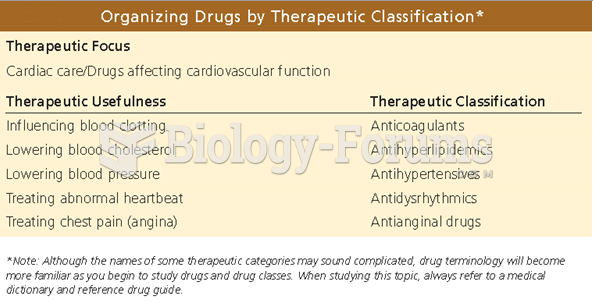|
|
|
Did you know?
People about to have surgery must tell their health care providers about all supplements they take.
Did you know?
In the ancient and medieval periods, dysentery killed about ? of all babies before they reach 12 months of age. The disease was transferred through contaminated drinking water, because there was no way to adequately dispose of sewage, which contaminated the water.
Did you know?
In 1864, the first barbiturate (barbituric acid) was synthesized.
Did you know?
Blood is approximately twice as thick as water because of the cells and other components found in it.
Did you know?
Eat fiber! A diet high in fiber can help lower cholesterol levels by as much as 10%.







